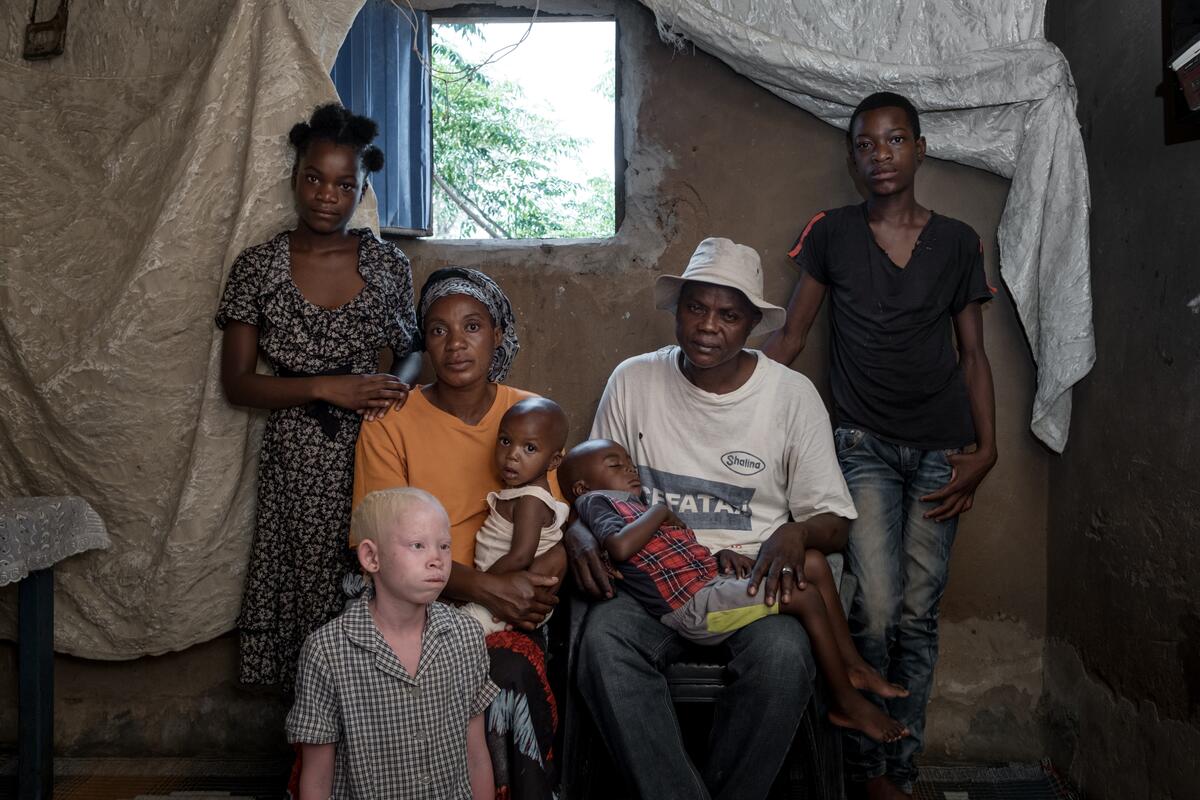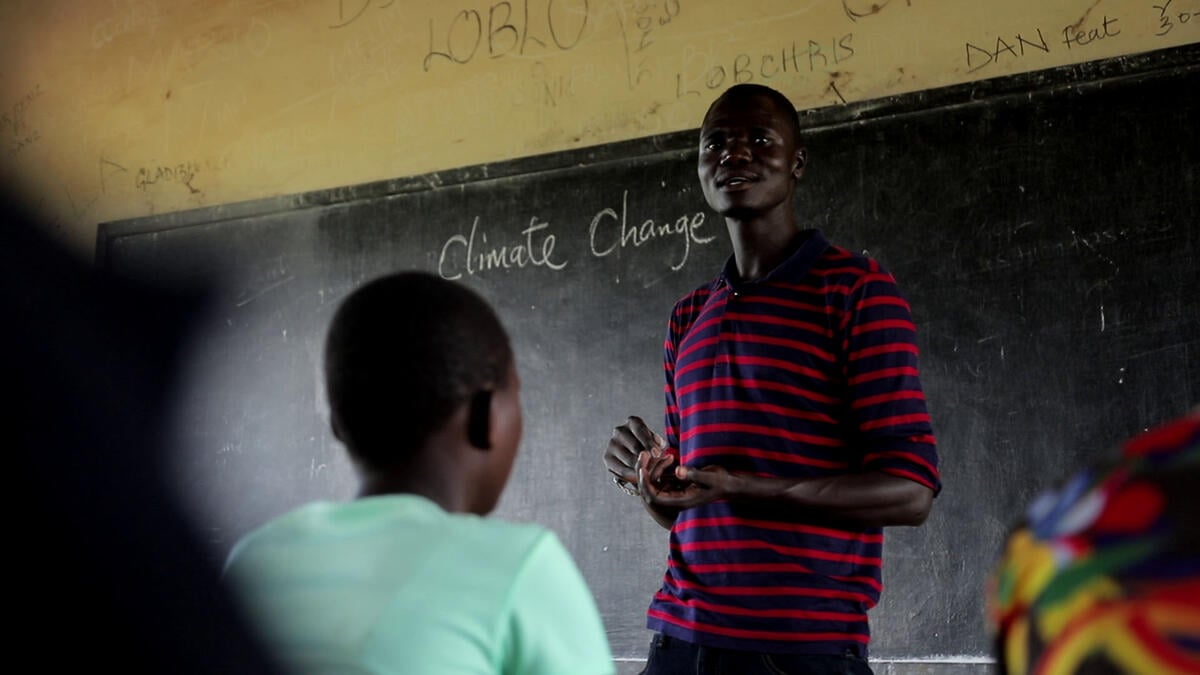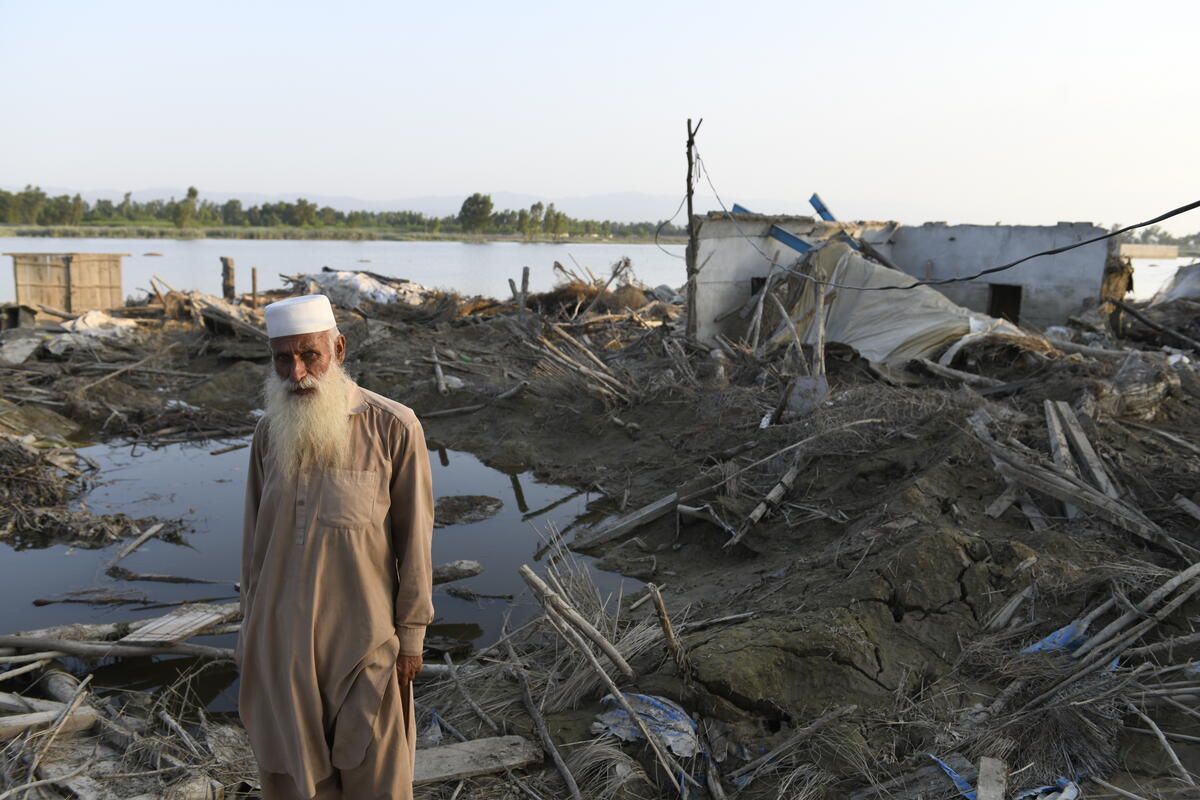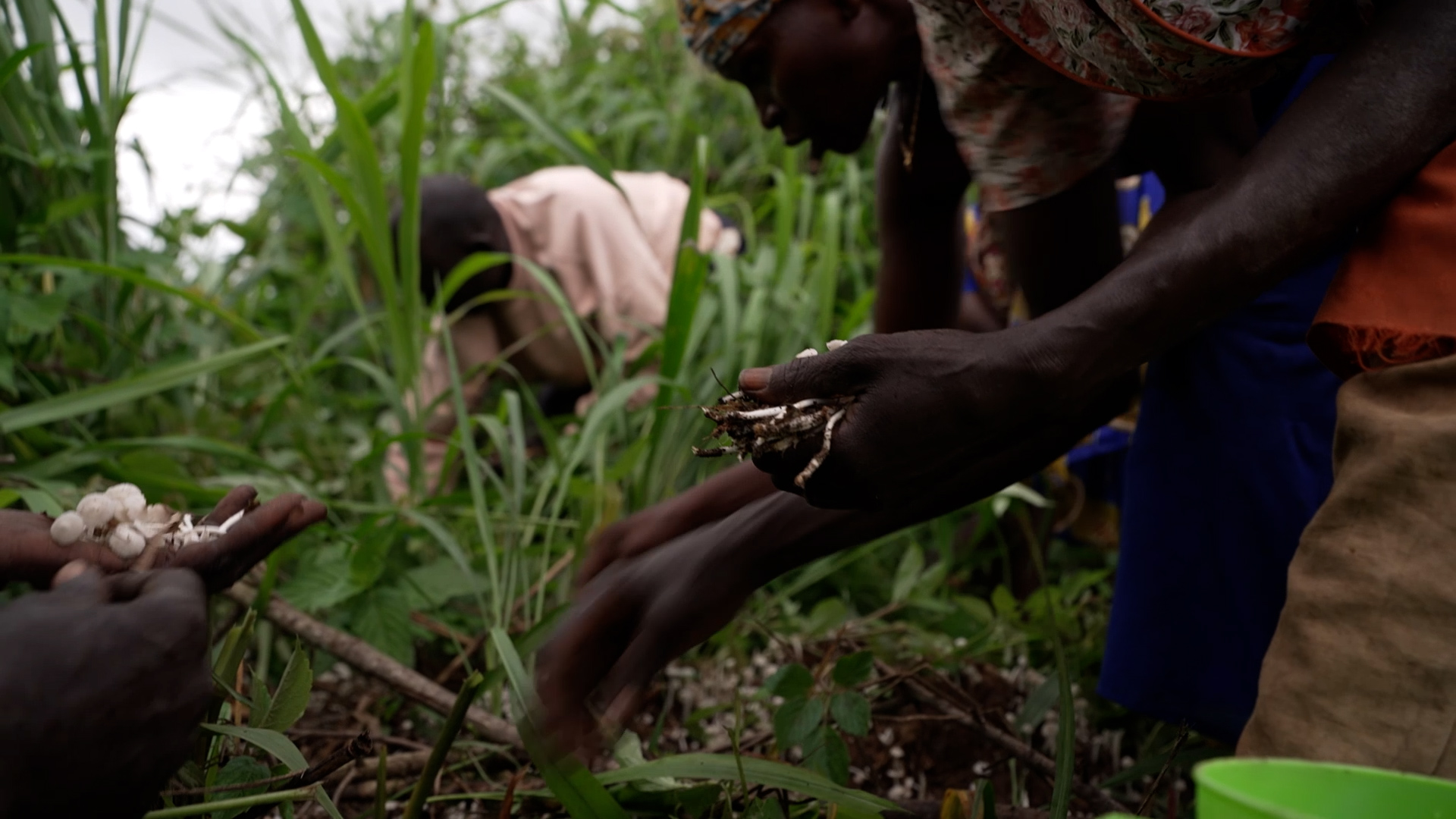Afghanistan at the crossroads: Drought, food crisis drive Afghans out of villages
Afghanistan at the crossroads: Drought, food crisis drive Afghans out of villages

KABUL, Afghanistan, November 10 (UNHCR) - Severe drought and food shortages have caused thousands of people to leave their villages in Afghanistan's north and west to find work and aid. Many more are expected to move in desperation as winter approaches.
Provinces such as Badghis, Faryab, Jawzjan, Ghor, Saripul, Balkh and Samangan have been hard hit by a harsh winter earlier this year, followed by a debilitating drought and poor harvest. The production of wheat - an Afghan staple - is reportedly down by 36 percent compared to last year, while the Ministry of Agriculture has said the country is facing a deficit of 2 million tonnes of mixed food items over the next six months.
Soaring global food prices have exacerbated the problem of food insecurity. A UN appeal in July reported that the prices of wheat and wheat flour have gone up by 200 percent countrywide over the past year. The worst affected people are the small farmers, landless people, nomads and casual labourers.
"There's no rain this year," complains Qadir, 25, who left his village in Balkh three months ago to find work in Kabul. "Back home, I own a plot of rain-fed land and grew wheat on it. It's small but was enough to feed my family - until the drought. I just left the land. It's useless."
Saifullah, 30, chips in, "The drought has affected hundreds of families in Samangan. We cultivated seeds but couldn't get a harvest or recoup our money. We're all leaving."
Momin, 18, is from Charken village in Balkh province, where he supports a family of six people. "My whole neighbourhood is affected. In the past, we could work on our farms. But now, people are going to Mazar-e-Sharif or Kabul to find jobs," he says.
The three men have joined hundreds of others at Charahi Sarai Shomali, a busy roundabout in northern Kabul located beside a bus station that plies the route between Kabul and the northern provinces. They come here early every morning and wait for potential employers to pick them up for daily-wage labour, mostly on construction sites. They make US$3-US$4 a day and work three to four days a week on average.
To save up for their families, it's not unusual for more than 10 of these migrant workers to share one room in Kabul. The living is rough, but at least they have some income and a roof over their heads - unlike the thousands of others who have been displaced by the drought and shortage of food and water.
The numbers of the drought-displaced vary. The Internal Displacement Monitoring Centre estimates that more than 6,500 Afghans have left their homes in the north and west as a result of the drought this year. The International Committee of the Red Cross believes some 280,000 people are suffering from its effects, and that thousands of families could leave their homes in search of food and work as winter looms.
In the last six months, UNHCR has reported the displacement of more than 2,700 families (approximately 19,000 people), mostly from or within Badghis, Balkh, Saripul and Samangan provinces. Some have gone to district centres like Mazar-e-Sharif, to nearby provinces like Herat, or to neighbouring countries such as Iran and Pakistan. All were forced to move because of food insecurity, drought or poverty.
Some families leaving Keshendeh district in Balkh dismantled their houses, indicating they had no intention to return. Those who remain said that without food and water assistance, 70 percent of the population - or some 500 families - could leave the area. UNHCR is working with other UN agencies and the government to start bringing water tankers as soon as possible.
"Meeting humanitarian needs in areas of origin is the best way to prevent food and drought-related displacement," said Ewen Macleod, the UN refugee agency's acting Representative in Afghanistan. "This means pre-positioning aid before snow and the cold weather cut off access to some of these areas."
Returnees have been affected too, including 183 families who returned from Pakistan to Saripul last year and recently left again for Quetta in south-western Pakistan. In the central Afghan provinces of Logar and Ghazni, food insecurity meant that returnees were too busy trying to support themselves to complete construction on their UNHCR-funded shelters. The agency worked with the World Food Programme to provide food to 700 families so that they could focus on finishing their homes before the onset of winter.
The largest recent displacement took place in Balkh, where 1,400 families left their homes in Alborz in late May and set up a makeshift camp beside a river in Sholgara district. After weeks of talks between the community, government and UN agencies, the families were transported back to their villages in mid-July, where they received food rations.
As security deteriorates in parts of the country, the UN has appealed for humanitarian access to allow aid workers to distribute food to needy communities ahead of winter. A recent report by British think tank, the Royal United Services Institute, warned that a looming famine in Afghanistan could pose a greater threat to international efforts to rebuild the country than the conflict there.
Desperation defies definition. Whether driven by hunger, thirst or poverty, thousands of Afghans are moving in an effort to survive. Asked if he plans to return home to Balkh soon, Momin the young job seeker in Kabul sighs, "If you have money, you miss your family. If you have no money, you can't afford to miss them. You need to do something to help them."
His friend Abdul Qadir, also from Balkh, adds simply, "If things get worse in Afghanistan, I'll have to go to Pakistan again."
By Vivian Tan in Kabul, Afghanistan









